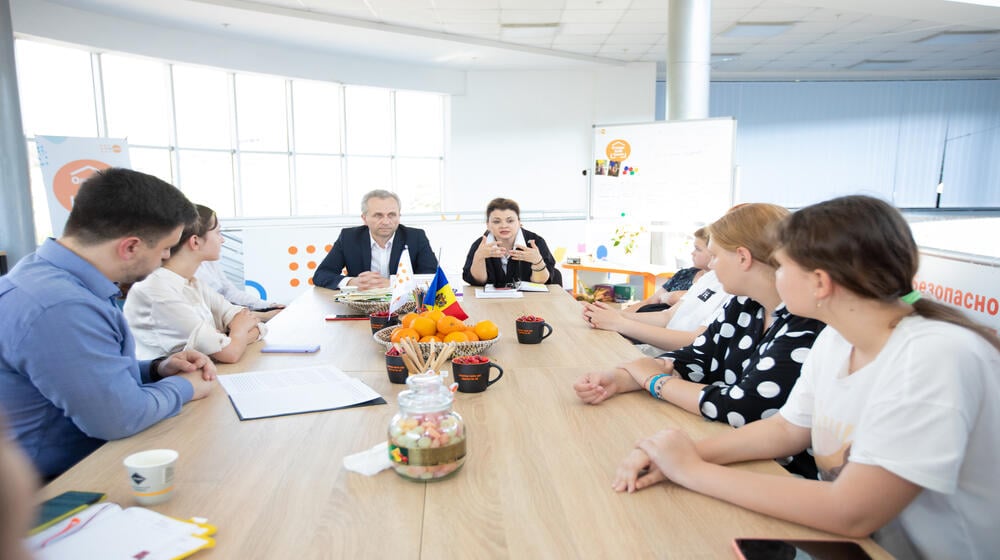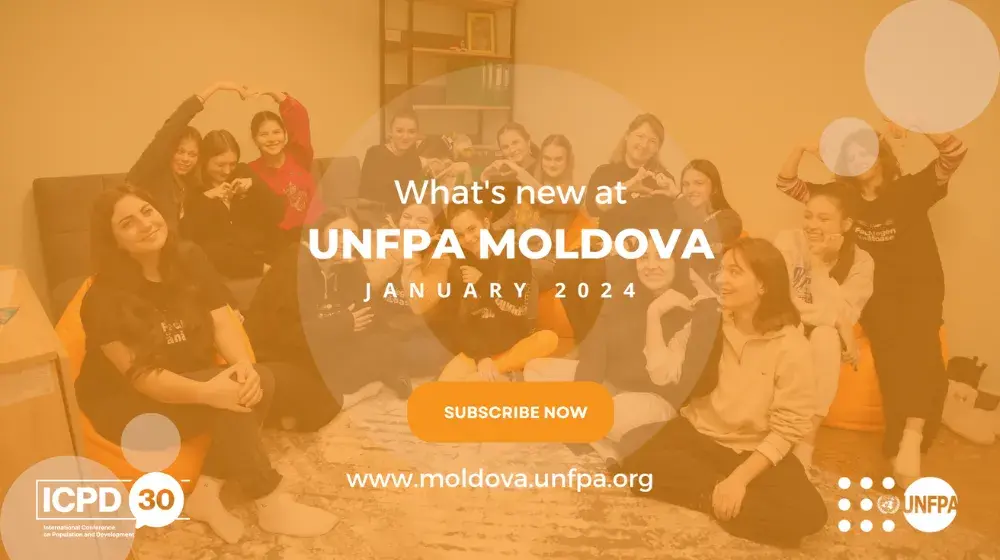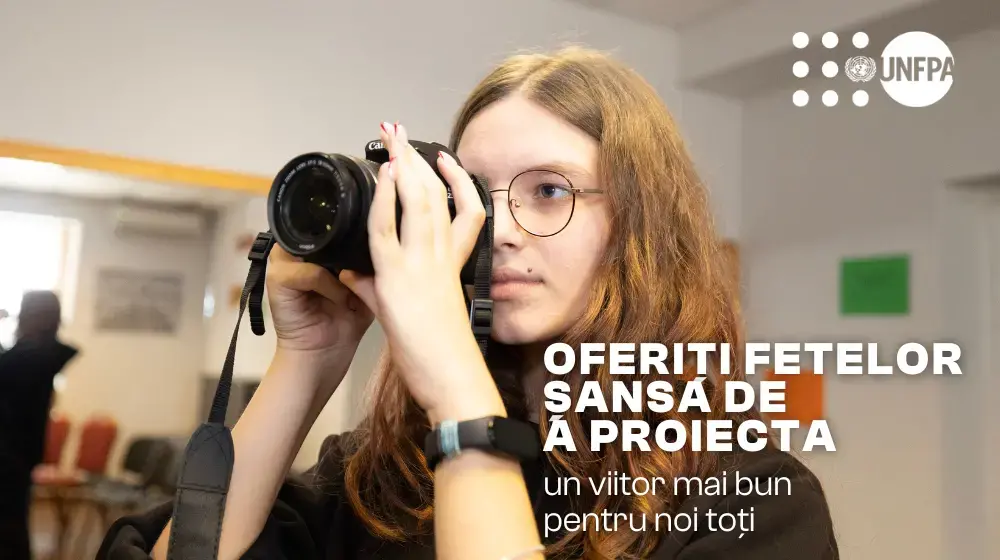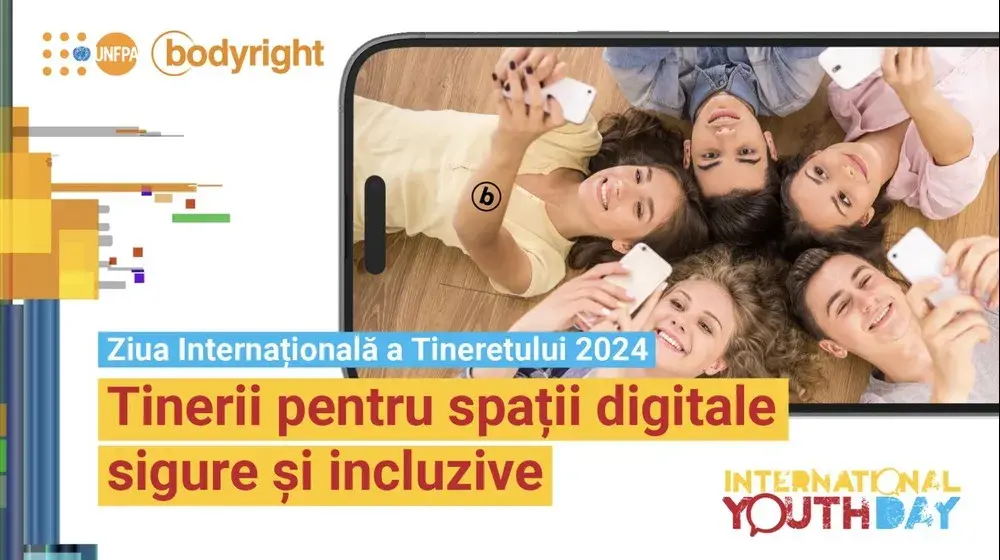UNFPA Resident Representative in the Republic of Moldova, Nigina Abaszada and Minister of Education and Research, Anatolie Topala visited the "Orange Safe Space" at the Moldexpo Temporary Refugee Placement Center, where they spoke with a group of young Ukrainian refugees, as well as representatives of the Youth Centres and the UN Youth and Adolescent Advisory Committee.
The visit to the Orange Safe Space was organized in order to document formal and non-formal education services, consult young refugees on the educational process and extracurricular activities available to them, identify new opportunities for development, participation, recreation, promotion of a healthy lifestyle, increase the resilience of young Ukrainians and strengthen social cohesion.
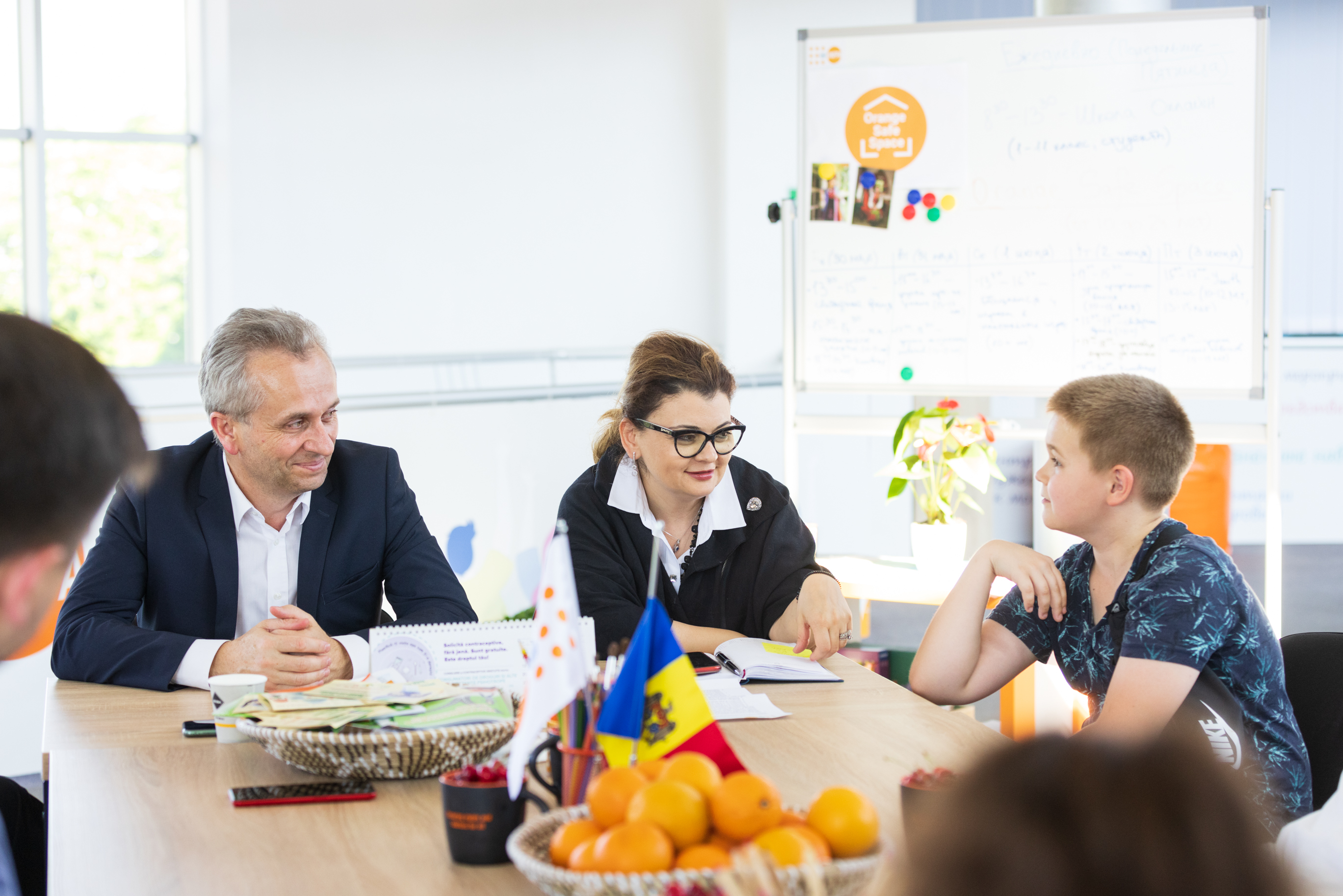
During the dialogue, the Minister of Education and Research Anatolie Topala sent a message of encouragement and support to young people in the context of the war in Ukraine, assuring them that the entire education system of the Republic of Moldova makes every effort to create conditions for their further education and organization of the summer vacation in the most useful and friendly way.
"It is important to expand such safe spaces in several Refugee Placement Centers across the country. I encourage Ukrainian adolescents and young people to participate in the activities organized for them and to benefit from all the existing youth services in the Republic of Moldova ", mentioned the Minister of Education and Research Anatolie Topală.
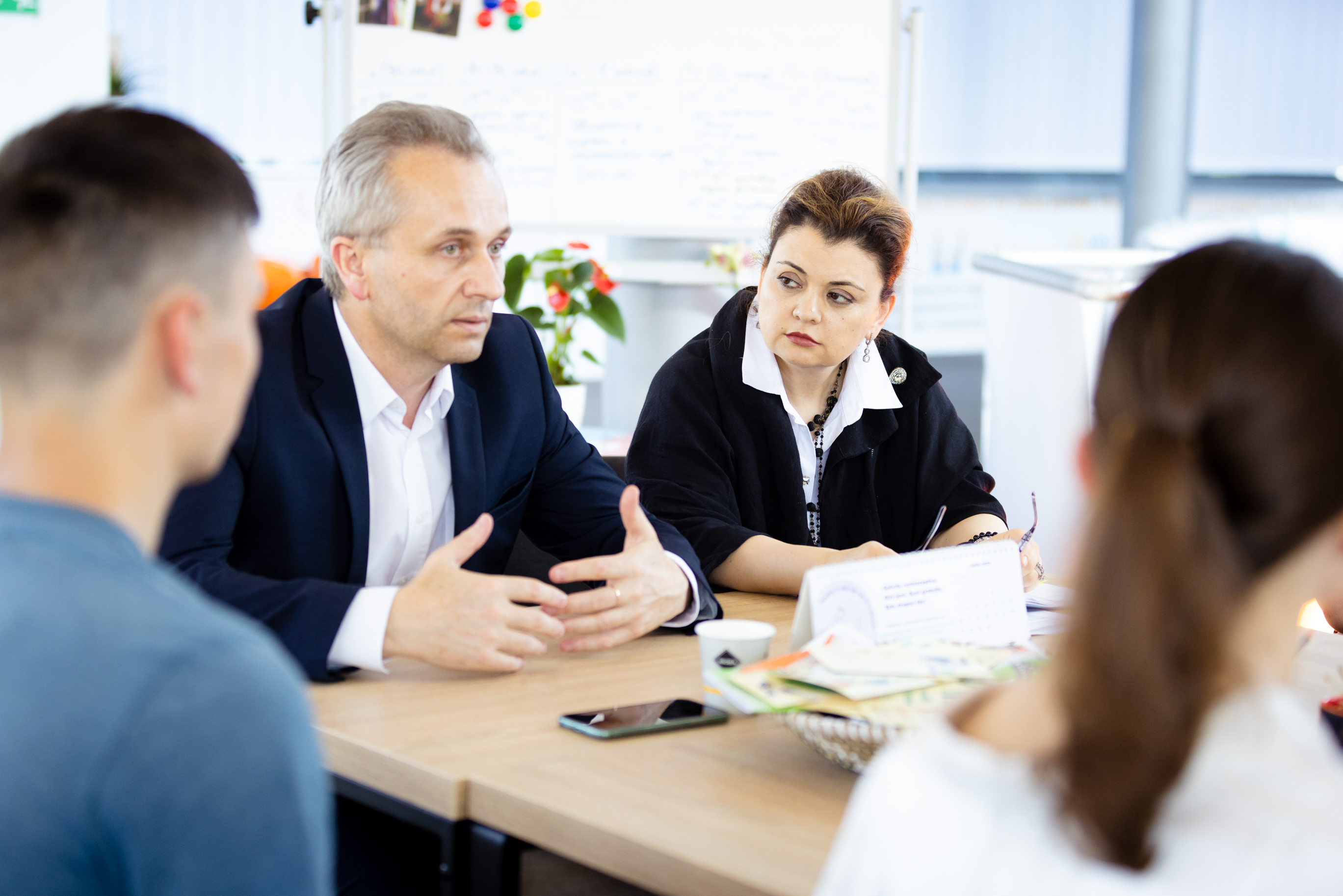
Nigina Abaszada, UNFPA Resident Representative in the Republic of Moldova, said that 90% of the refugee population is placed in communities, that is why the connection with local formal and non-formal education services is essential.
"The network of Youth Centers, supported by the Ministry of Education and Research and the development partners, is an excellent platform for involving young Ukrainians and strengthening intercultural dialogue with Moldovans. At the same time, "Orange Safe Spaces" created in temporary placement centers offer adolescents and young people opportunities for learning and personal development, helping them to avoid risky behaviors ", said Nigina Abaszada.
The young volunteers from the Grătiești Youth Center, both Moldovans and Ukrainians, decribed the activities they carry out at the Center. "We have art therapy programs, debates, volunteer activities with children, and for the summer vacation we plan to organize more outdoor recreational activities," said Sabina, a young refugee from Melitopol who is an active volunteer at Grătiești Youth Center.
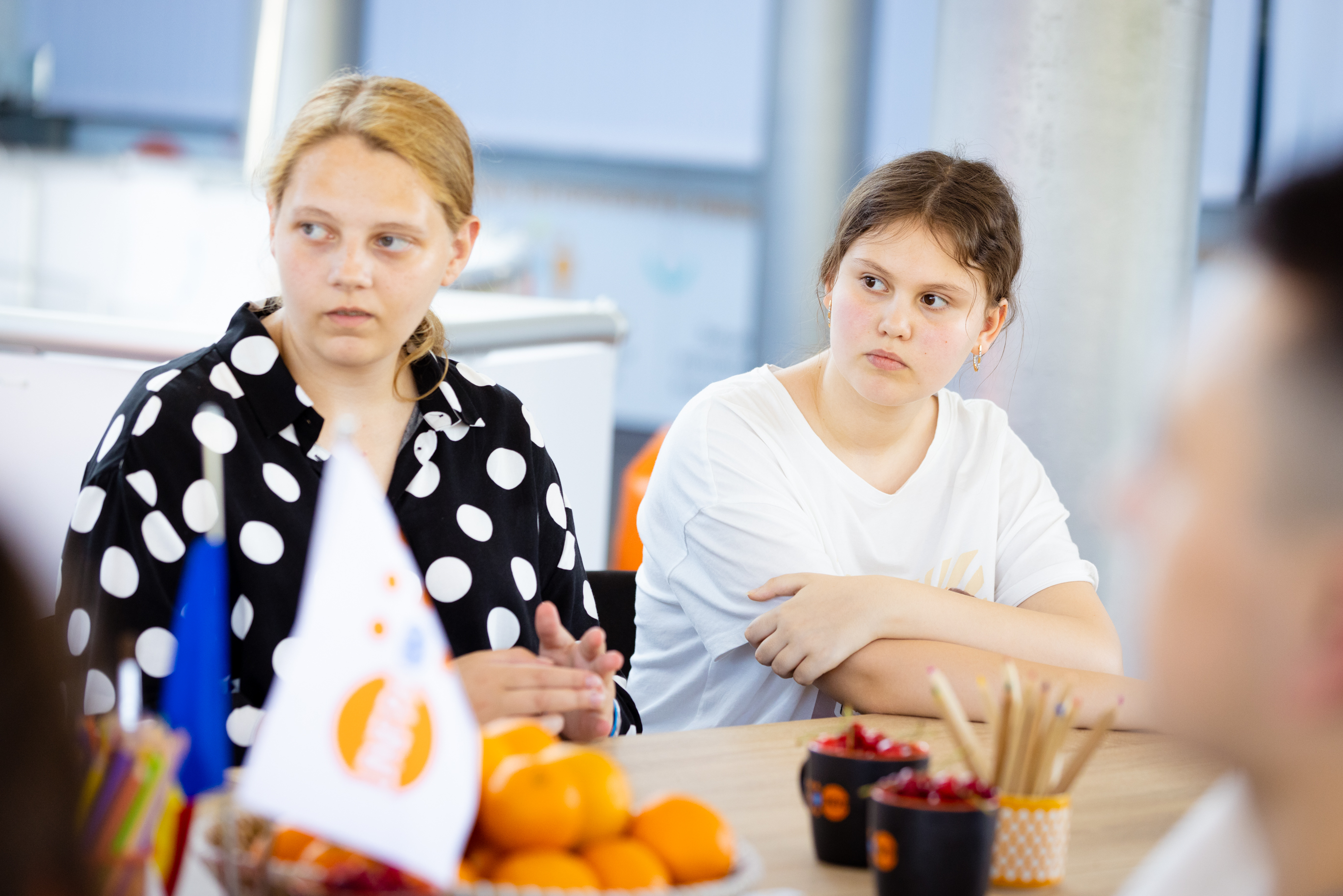
On the other hand, adolescents and young refugees who use the "Orange Safe Space" services appreciated the fact that they have free access to computers, educational materials and artistic literature, psycho-emotional support, health activities and life skills development, Romanian language classes, but also other personal development and leisure activities organized here.
When referring to the educational process, the young Ukrainians expressed their desire to learn the Romanian language in order to be able to communicate more easily with the local population.
Orange Safe Spaces were set-up by UNFPA in other 6 Temporary Placement Centers for Refugees on the territory of the Republic of Moldova, including inside the dormitories of the Vocational School from Criuleni and Nisporeni, dormitories no. 2 and no. 9 of the Technical University of Chisinau, the State University of Moldova and the ARTICO Center.
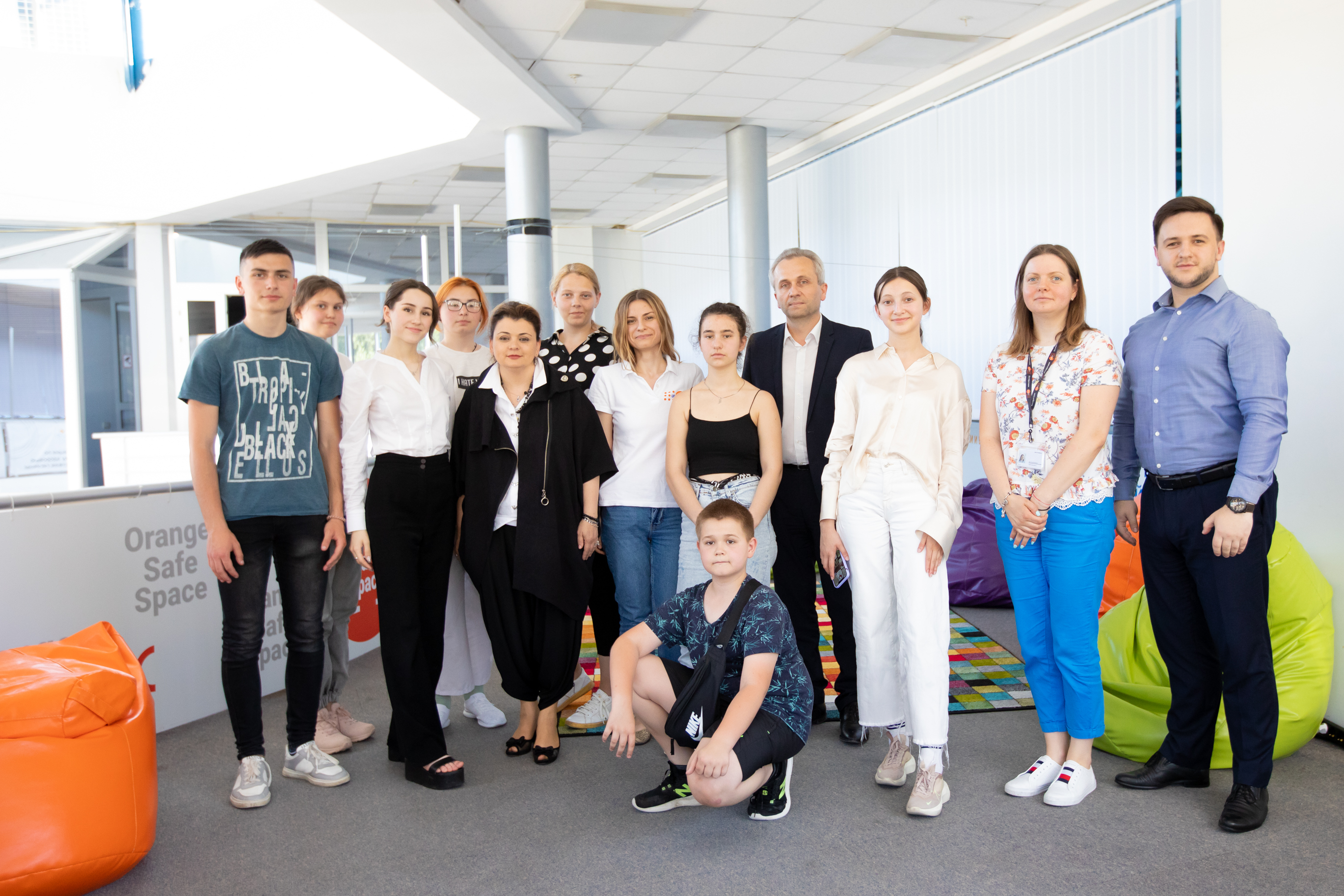
Currently there are more than 87,000 refugees residing in Moldova, with more than half being children, adolescents and young people.

